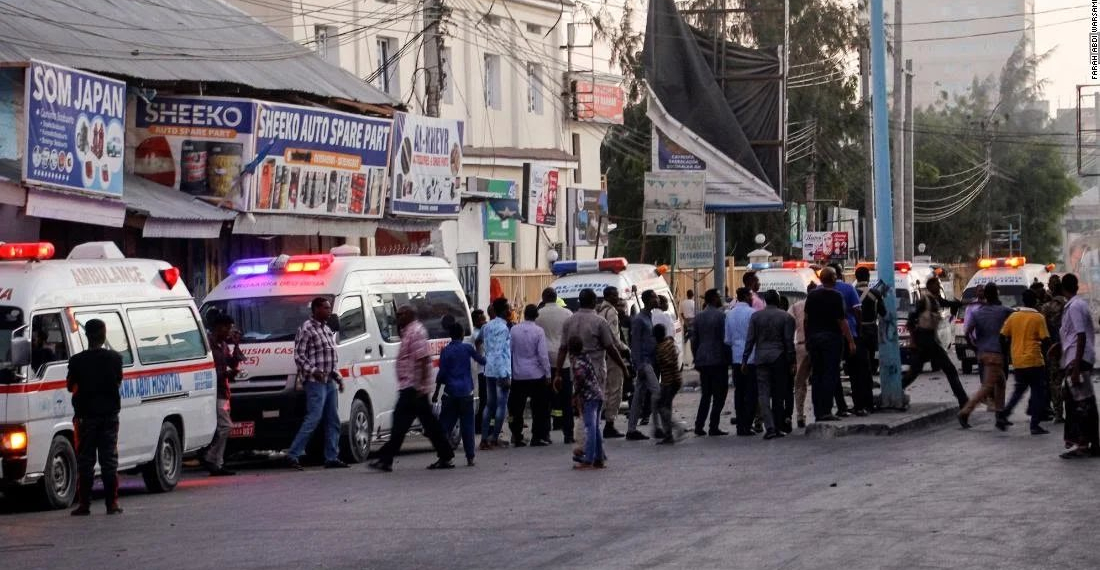A suicide car bombing on Sunday evening killed at least nine people in Somalia's capital, Mogadishu. The bombing was followed by a shootout between Al Shabab militants and security forces at Hotel Afrik near the airport. A police spokesman said that fighting continued until early hours of Monday.
“The operation is over now. Nine people including four attackers died and over 10 civilians were injured,” Sadik Ali, told reporters from the scene and via Facebook.
Prime Minister Mohamed Hussein Roble said in a statement that former military general Mohamed Nur Galal was among those killed in Monday’s attack.
“I condemn the barbaric attack,” he said. “General Mohamed Nur Galal will be remembered for his over 50 year role in defending the country.”
Afrik Hotel is a popular hotel located near the Mogadishu airport and is frequented by government officials, members of the security forces and community leaders. Al Shabab group claimed responsibility for the attack.
Al Shabab insurgency carries out regular attacks in Mogadishu and elsewhere in an insurgency that has been ongoing since 2008 as part of an attempt to overthrow Somalia’s internationally-backed central government and establish its rule, based on its own harsh interpretation of Islamic law. The group was driven out of Mogadishu by government forces backed by 20,000 African Union peacekeepers in 2011. The group still controls territories outsides the large cities from where it plans its attacks.
Under Donald Trump's presidency, the United States pulled out military personnel who were assisting local forces to mitigate high-level security risks. Al Shabab has pledged to disrupt presidential elections which are scheduled to be held in Somalia next Monday.







